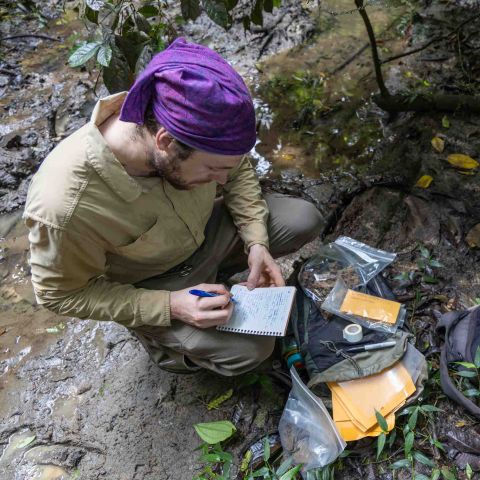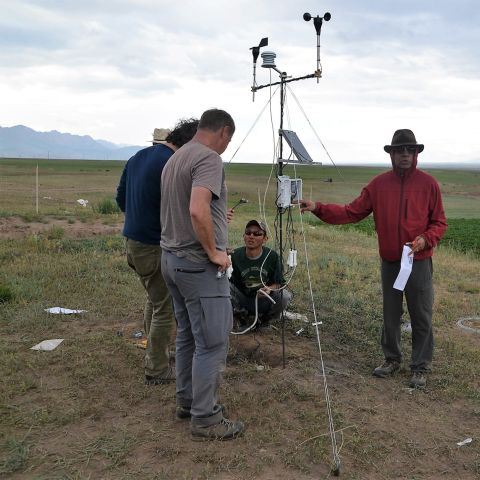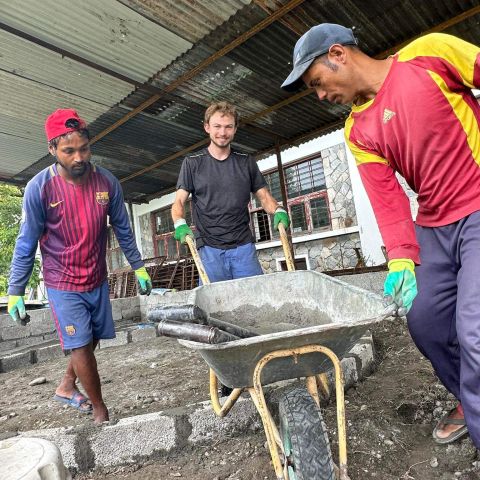The East Asia Program (EAP) offers several categories of fellowships and grants to support student research and study related to East Asia.
A fellowship is an arrangement in which financial support is given to a graduate student to pursue his or her degree without obligation on the part of the student to engage in teaching. Fellowships are generally merit-based awards intended to support a student with full-time enrollment in field research or a course of study at Cornell.
EAP also offers small amounts of funding for co-sponsorship of student organizations on campus to hold events featuring cultures of East Asia.
Can I apply in my first year?
Yes. However, students not yet doing research and still doing coursework, i.e., pre-A-Exam, during the fellowship period will be given lower consideration.
Do I need to complete my A-Exam first?
Not necessarily. Applicants should include in their proposal when they have completed, or plan to complete, their field A-exam, and how this relates to the work they are proposing to do with an EAP fellowship.
If I decline the fellowship this year, may I reapply next year as well?
Yes, you can always re-apply the following year. And, declining a fellowship is actually a positive factor for the next application. EAP tries to spread the wealth of its funding to many students rather than repeatedly awarding to the same students. Having had, and used, an EAP fellowship previously counts against one’s application.
Is it possible to accept another fellowship on top of this one?
No, not at the same time. But EAP fellowships are for one semester. Therefore, some recipients have other fellowships or grants that cover the other semester of the academic year. If you receive some other fellowship such as a Fulbright Hayes or a foundation fellowship that is for the full year and overlaps with an EAP fellowship semester, you must decline the EAP fellowship.
Can I make changes to my application after I submit it?
Students can begin, edit, and save their application as many times as they need, until the deadline and full submission.
Can I request that my recommenders upload their recommendation letters before I upload all of my application materials?
Yes, the application allows recommenders to upload their letters at any time once an application is started and saved. Once the recommender’s email address is put into the field and the application saved, the system sends an email to the recommender.
Can I apply to EAP's fellowship and travel grant at the same time?
Yes.
Can I apply for this fellowship as a 2nd year course graduate student?
Yes.
Does the graduate fellowship prefer students who plan to do fieldwork?
No, we do not have a preference either way.
Does the fellowship always replace a student’s TA funding by default?
No. Students should arrange with their department how an EAP fellowship will fit into their funding for the following academic year.
Can I receive the fellowship and TA to get extra money at the same time?
No.
Do the recommenders have to both be faculty? Could I ask my employer?
Yes, you can ask an employer depending on your project and if its outside of the Cornell advising structure. For language study grant applications we suggest that one recommender be a language instructor, either that you have studied with previously, or in the language you intend to study.
Can you use an EAP fellowship in the summer?
No, but you can use an EAP travel grant or an LSG award in the summer.
Is the stipend amount adjusted for the cost of living of the location of fieldwork?
No, the stipend amount is the same for all fellowship awards: the authorized Cornell Graduate School research stipend amount.
How long should the fellowship proposal be?
Generally, people submit fellowship proposals that are 2–3 pages long and single-spaced. Please do not exceed 5 pages. Keeping it short and focusing on the activities you would do to achieve your research goals during the fellowship award period will work best.
How should I structure the “statement of purpose” on the East Asian Language Study Grant?
We suggest three sections: abstract, project description, and budget description. That has been a good structure for applications in the past. Please paste your project proposal into the statement of purpose fields since the LSG application does not have a file upload for the proposal—only for a CV/resume.
On the application, what does "country of research" refer to?
Your country of research is the primary country on which you are conducting research.
If I am applying to two language programs that require their own admissions processes, in my proposal should I list both programs depending upon whether or not I am accepted into either program?
Yes, please list the language programs you have or are planning on applying to.





